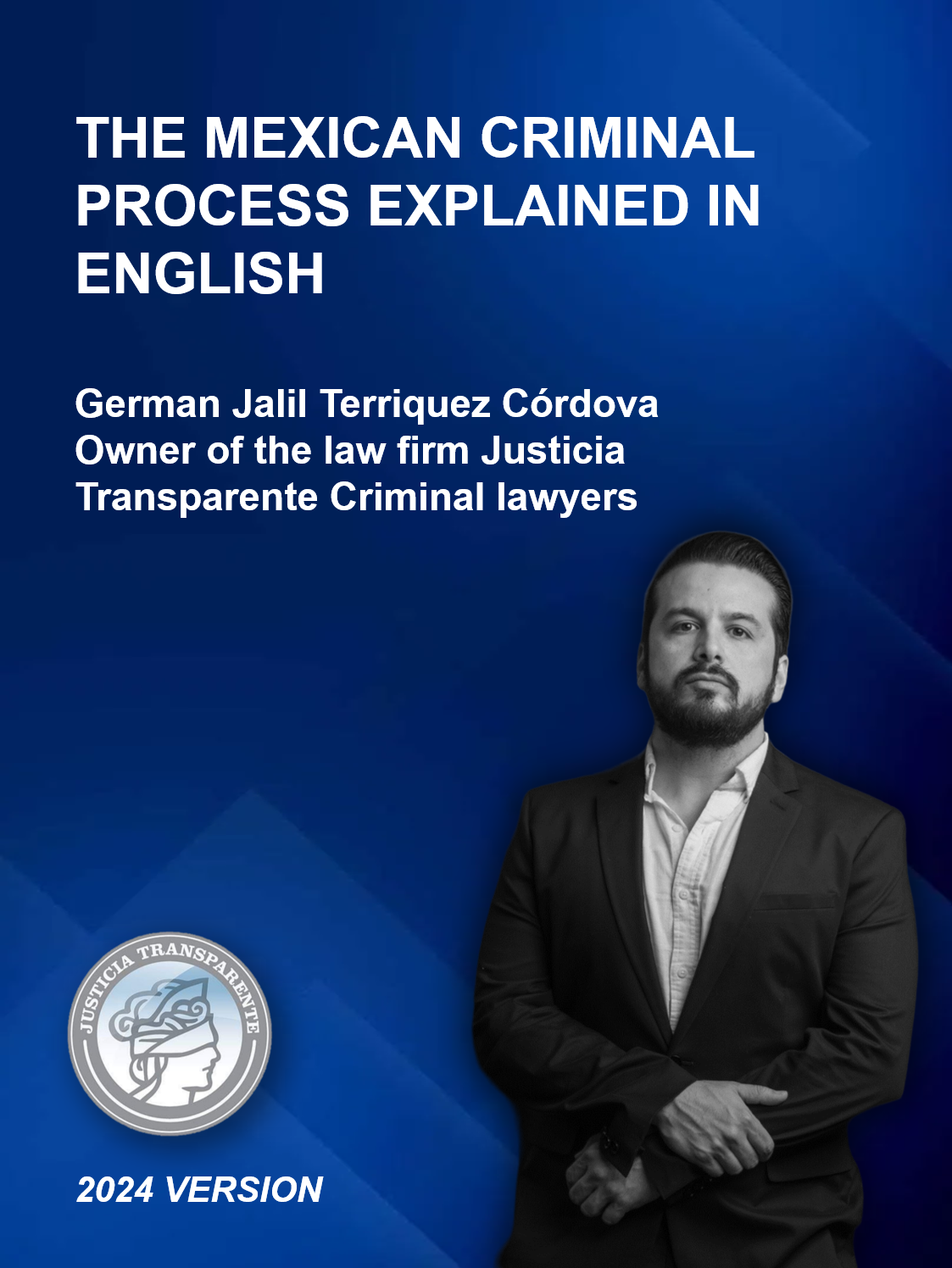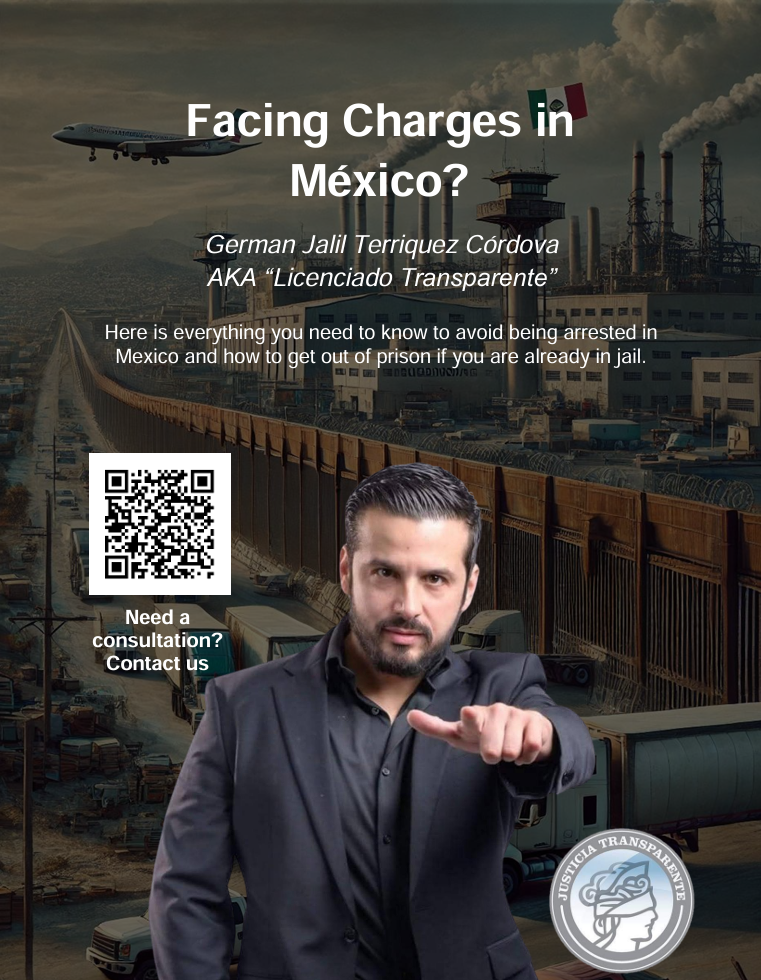
Tax fraud and its criminal consequences. In recent years, news and rumors have been heard about those who commit the crime of tax fraud, however not everyone knows what it is about, here we will explain in detail what it consists of and what are the consequences of committing this type of crime.
1. What is tax fraud?
Article 108 of the Fiscal Code of the Federation mentions that:
Article 108.- Anyone who, using deception or taking advantage of errors, totally or partially omits the payment of any tax or obtains an undue benefit to the detriment of the federal treasury, commits the crime of tax fraud.
2. How is the crime of tax fraud credited?
This crime can be proven in the following ways.
Accused a relative of a crime in Mexico? Do you need to know if it is a crime to bring weapons into Mexico? Do you need to know if it is a crime to bring marijuana into Mexico? The prosecutor is accusing me of having committed a crime that I did not commit? Has your loved one been in jail in Mexico for years?
If you are in one of these situations, hire an online consultation.
Do you want to avoid an arrest warrant against you in Mexico?
- With the use of deceit, totally or partially omit the payment of any contribution to the detriment of the Federal Treasury.
- Taking advantage of errors, totally or partially omit the payment of any contribution to the detriment of the Federal Treasury.
- With the use of deception, obtain an undue benefit to the detriment of the Federal Treasury.
- By taking advantage of errors, obtain an undue benefit to the detriment of the Federal Treasury.
3. How does the crime of tax fraud proceed?
According to the first section of article 92 of the same code, this crime proceeds at the moment the Ministry of Finance and Public Credit files the complaint.

4. Is it a crime that warrants preventive detention?
For preventive detention for this crime to proceed, one of the following assumptions must be met.
Visit our online store
One of our products can help you
1. Exceed the amount of $ 8,695,470.00, that is to say that the amount of the defrauded exceeds 3 times what is established in article 108 in its section III of the Federal Tax Code.
2. They are exclusively qualified, this is established by the same article 108 in its paragraphs from A to I of the Fiscal Code of the Federation:
a) .- Using false documents.
b) .- Repeatedly omit the issuance of receipts for the activities carried out, provided that the tax provisions establish the obligation to issue them. It is understood that there is a repeated conduct when during a period of five years the taxpayer has been sanctioned for that conduct the second or subsequent times.
c) .- Manifest false data to obtain from the tax authority the return of contributions that do not correspond.
d) .- Not keeping the accounting systems or records to which one is obliged in accordance with the tax provisions or entering false data in said systems or records.
e) Omit withheld, collected or transferred contributions.
f) Manifestar datos falsos para realizar la compensación de contribuciones que no le correspondan.
g) Utilizar datos falsos para acreditar o disminuir contribuciones.
h) Declarar pérdidas fiscales inexistentes.
i) Utilizar esquemas simulados de prestación de servicios especializados o la ejecución de obras especializadas, descritas en el artículo 15-D, penúltimo párrafo, de este Código, o realizar la subcontratación de personal a que se refiere el primer y segundo párrafos de dicho artículo.
3.If it is a fiscal year from January 2020 onwards, this is due to the criminal tax reform that entered into force on January 1, 2021, where various regulations were modified, among which is the Federation fiscal Code.
5. Can I settle if I am being accused of tax fraud?
If a reparation agreement can be reached, as long as the assumptions established in Art. 167, paragraph 7, section II of the CNPP do not occur, that is, the fraud for which you are being accused, does not exceed $ 8,695,470.00, nor is it qualified, qualifications that we can find in article 108 of the Federal Tax Code in paragraphs A to I, which were already mentioned previously.
In the event that the aforementioned positions are given, if applicable, as long as it concerns fiscal years prior to January 2020, this is due to the aforementioned reform.
6. Is there a conditional suspension of the process for this crime?
If it can be subjected to a conditional suspension while it deals with section I of article 108 of the Federal Tax Code, that is, it does not exceed the amount of the defrauded of $ 1,932,330.00 and in the case of fiscal years prior to January 2020 due to the reform.
In the other cases, section II and III of article 108 of the Federal Tax Code does not apply since it would exceed the allowed value.
7. Is there another option other than to go to trial to finish the process for this crime?
It is important that you know that there is a different way out of the trial which is established in article 92 of the Fiscal Code of the Federation, where it specifies that before the public prosecutor and legal adviser formulate the closing arguments, it can be dismissed upon request. of the Ministry of Finance and Public Credit, it should be noted that this will only be applicable when the defendants pay the contributions originated by the imputed events, the sanctions and the respective surcharges or the tax credits are guaranteed to the satisfaction of the Ministry.
The Mexican criminal process explained in English

Facing Charges in México?.


